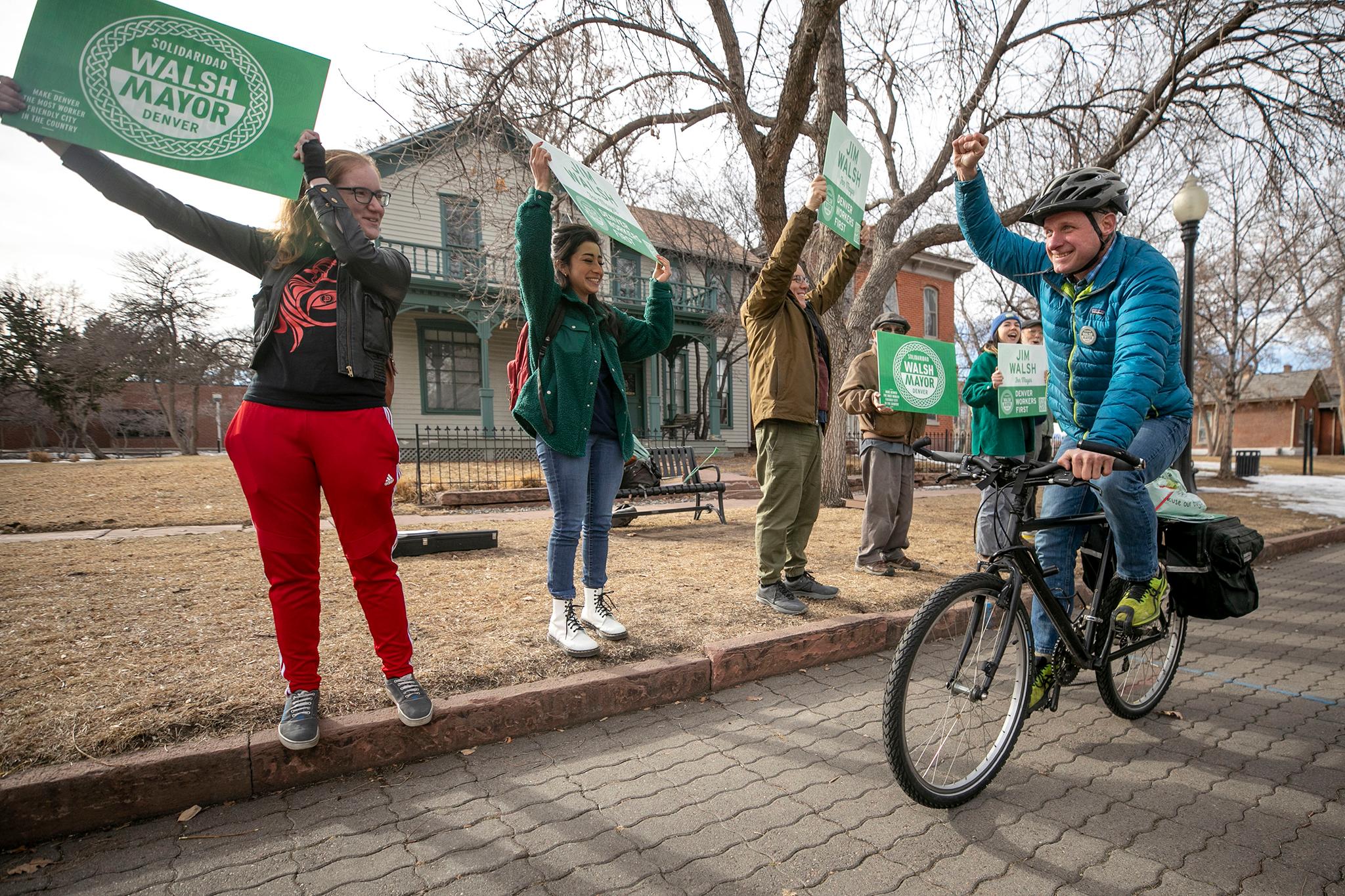Jim Walsh, who's using the race for mayor to champion Denver workers, isn't just running to be the city's pro-labor CEO. He's pedaling for it.
On Wednesday afternoon, he gathered in front of historic homes on the Auraria Campus with a group of supporters to set out on a five-day bike ride through the city's 78 neighborhoods.
"I'm happy when I'm on two wheels," Walsh said. "I'm engaged when I'm on two wheels. And so just as Wellington Webb won the mayor's office with his sneakers, I hope to win it on two wheels."
Walsh has a long -- and occasionally perilous -- journey ahead of him. He spends most of his summers biking around the United States and Ireland -- so he's used to arduous and occasionally unpredictable rides.
"Over the next five days, I pledge to cycle every single neighborhood in Denver, stopping wherever I can, where supporters have invited me to little house parties and coffee shops, and visiting with both worker organizations, interviewing workers, and talking to people who are engaged in collectivist action," he said.
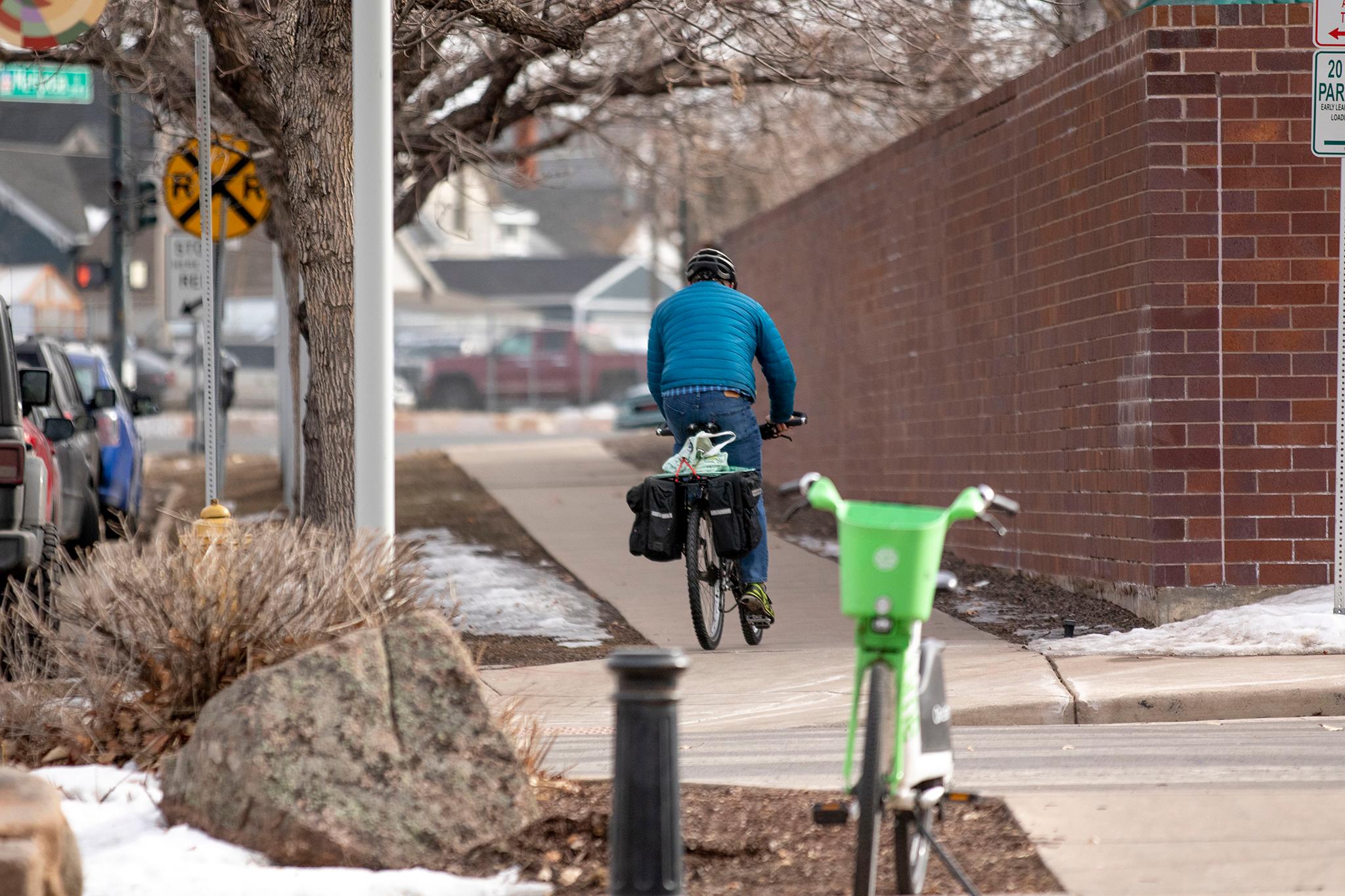
And while labor politics is his focus, he's also committed to improving Denver's bike infrastructure.
"I've lived here since 1990," he said. "I know how to get around by bike in the city. And absolutely there are places that are not bike friendly. There are lots of roads that are not bike friendly. But I think maybe this tour could raise awareness about the need for more infrastructure, pouring more money into bike lanes, expanding bike lanes, driver education.
"There's been a lot of cyclists hit and killed in the last year," he continued. "So if this can shine a light on those issues too, fantastic, because I'm a great fan of cycling, and I'm a big cyclist myself."
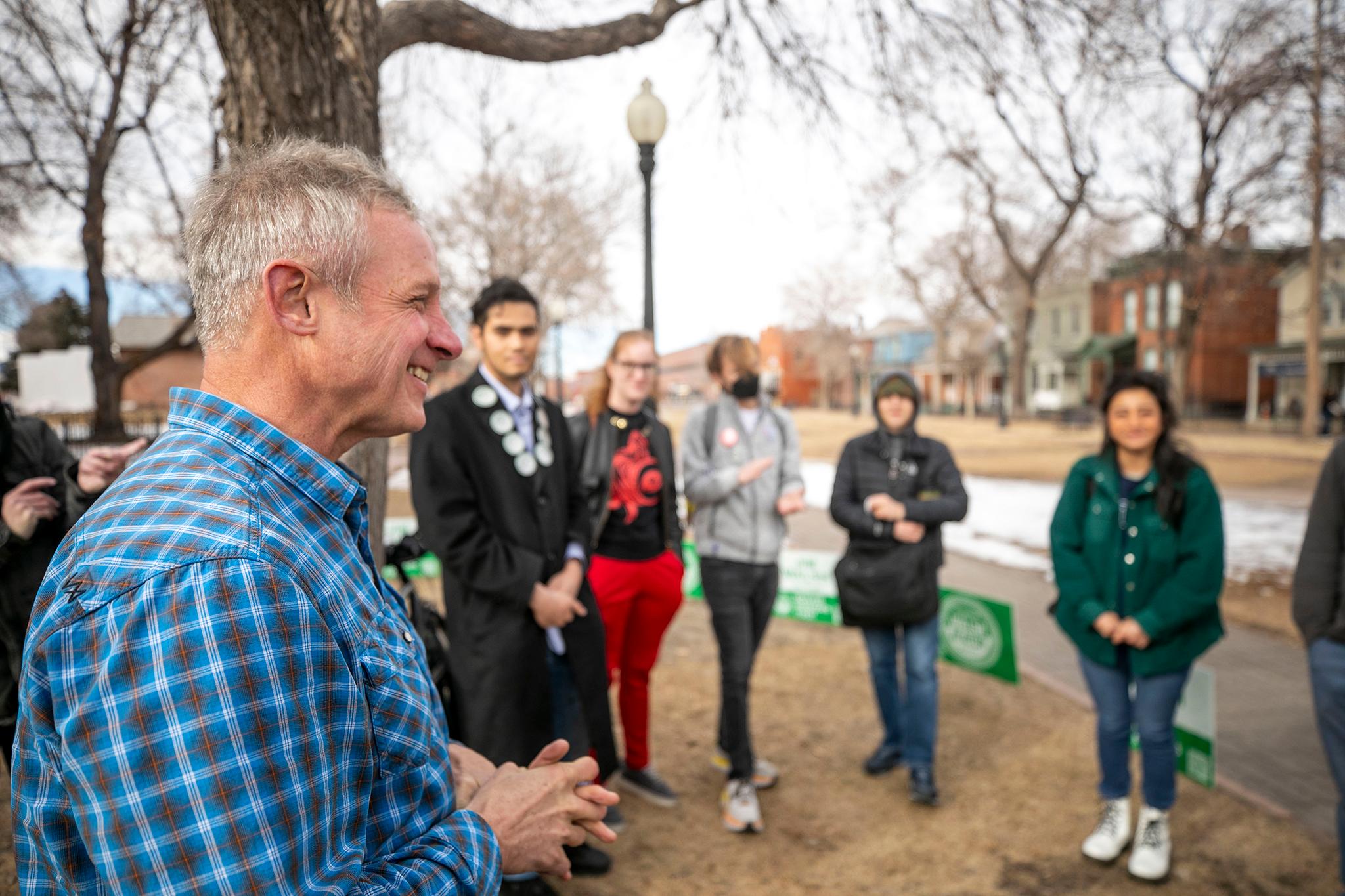
On his ride, he'll visit worker organizations and community groups, bringing attention to their work.
Those include Centro Humanitario and the Green Dragon dispensary union, along with other groups like the Consumption Literacy Project, an urban gardening program in schools run by one of Walsh's former students.
He plans to speak with a middle school teacher and the construction team who built a memorial in Larimer Square to a lynching that took place in 1900.
On Wednesday, he pedaled to the Tramway Building, where REI is, to make a short video about a tramway worker's strike in the '20s, where several bystanders were killed.
And today, which will be cold and windy, Walsh plans to head to the first Fair Elections Fund debate at Regis University.
"My hope is along the way to highlight history," he said. "This is what I do. I'm an historian. So I feel like whoever's in the mayor's office needs to understand the history of Denver beyond just the social issues that the city faces today. It's impossible to really have command of those social issues without a deep knowledge of the history of the city."
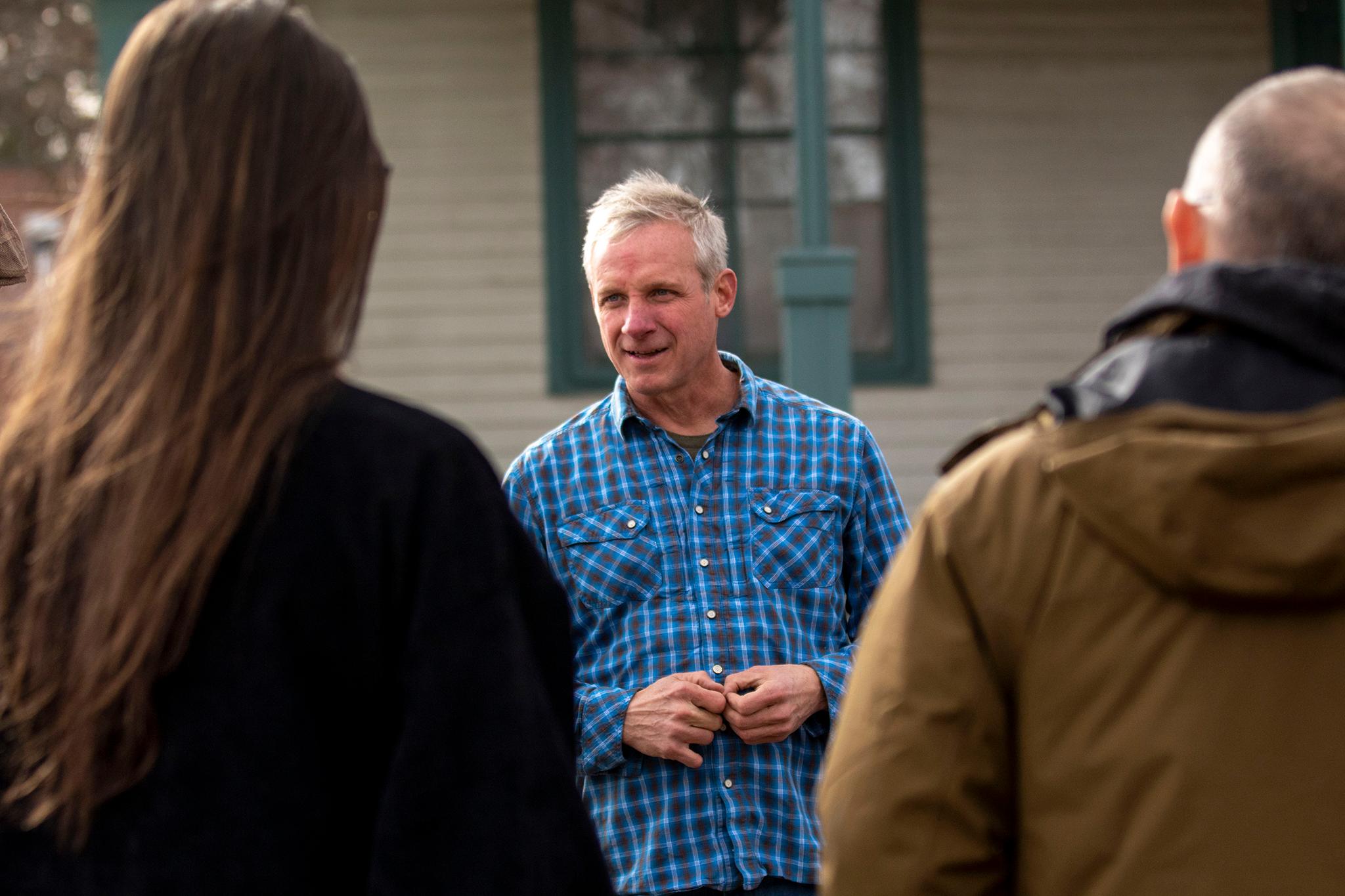
Walsh, who has never run for office and is one of the least connected to the establishment in the race, knows he's an underdog. But he's hustling.
"This is not just a protest campaign," Walsh said. "We want to win. And we want to meet the people, and we want to do something that other campaigns would never imagine doing."
He has fierce and well-funded competition, and many of those candidates continue to raise money with zest. His name has not registered on any polls. He has raised $16,106.99 and is currently in 14th place in fundraising -- and he's being out-raised by candidates who have already dropped out.
Still, he has significant support, bringing in 441 donations, an average of $26.80 each.
But it pales in comparison to Kelly Brough, the former head of the Denver Metro Chamber of Commerce, who has secured 1,871 donations, amassing a total of $848,872.47. And State Rep. Leslie Herod who has brought in $624,437.68 from 2,906 donations.
"This election is shaping up between the big names -- those who have name recognition and lots of financial support -- and the rest of us," he said. "To break into that and gain attention is a challenge."
Folk music is the soundtrack to his campaign.
He's calling his bike ride the Bread and Roses tour, a nod to the old folk song about textile workers, all women, who went on strike in Cambridge, Massachusetts. The song is based on the premise that workers need both basic needs met and life's riches.
"Workers deserve bread," Walsh explained. "They deserve survival. But they also deserve the finer things in life: roses."
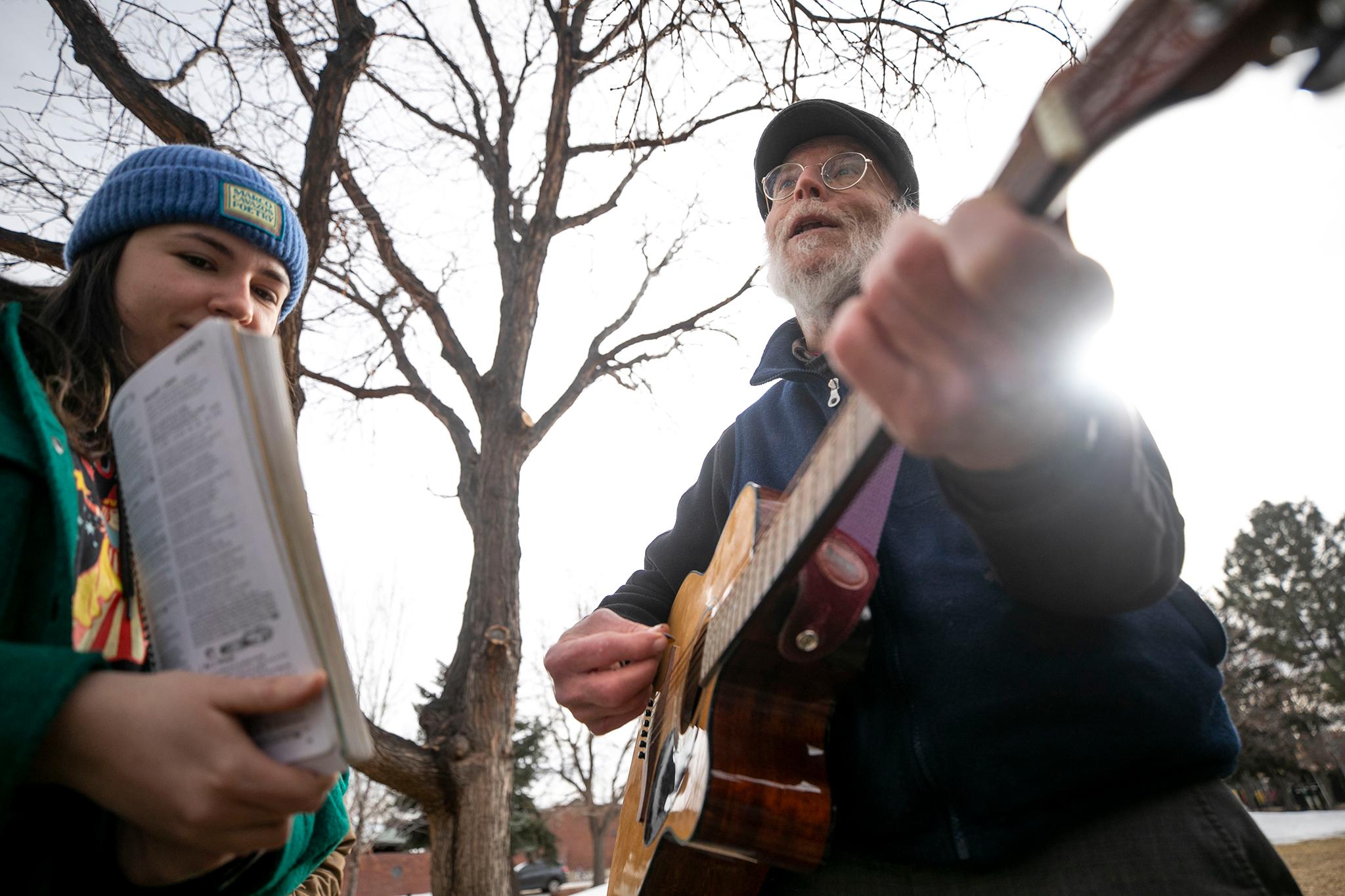
Folk singer and Romero Theater Troupe member Eric Wright, a man with a white beard and an acoustic guitar, sang the song, stumbling through the words, dropping his pick and charming every last person in the crowd, who sang along.
Wright followed "Bread and Roses" with his own song called "Jim Walsh for Mayor," which everybody joined in to sing.
"Jim Walsh for Mayor," Wright sang. "Jim Walsh for mayor. / A leader whose radical, forthright and fair. / Denver workers first. / It's more than just words. / It's Jim's campaign pledge. / One that we've seldom heard."
Walsh's students -- at least the ones running his campaign -- tear up when they talk about him and how he introduced them to worker's movements around the world.
"I joined Jim's Labor and Working Class Politics class last semester," said Hatem Teirelbar, a fourth-year political science student at the University of Colorado Denver. "He was the first teacher I had who really tried to take us out of the classroom and into where the movement is. He would bring organizers as guest speakers almost every week. And he taught me more about local history than anyone else.
"So that showed me that he's someone who's here for Denver, who knows the city, who understands it, and who's already spent decades working to make it better," he continued. "And now he's trying to take that to the next stage."
After the rally, Walsh's supporters formed a gauntlet with his Irish-green signs and cheered him as he pedaled away.

